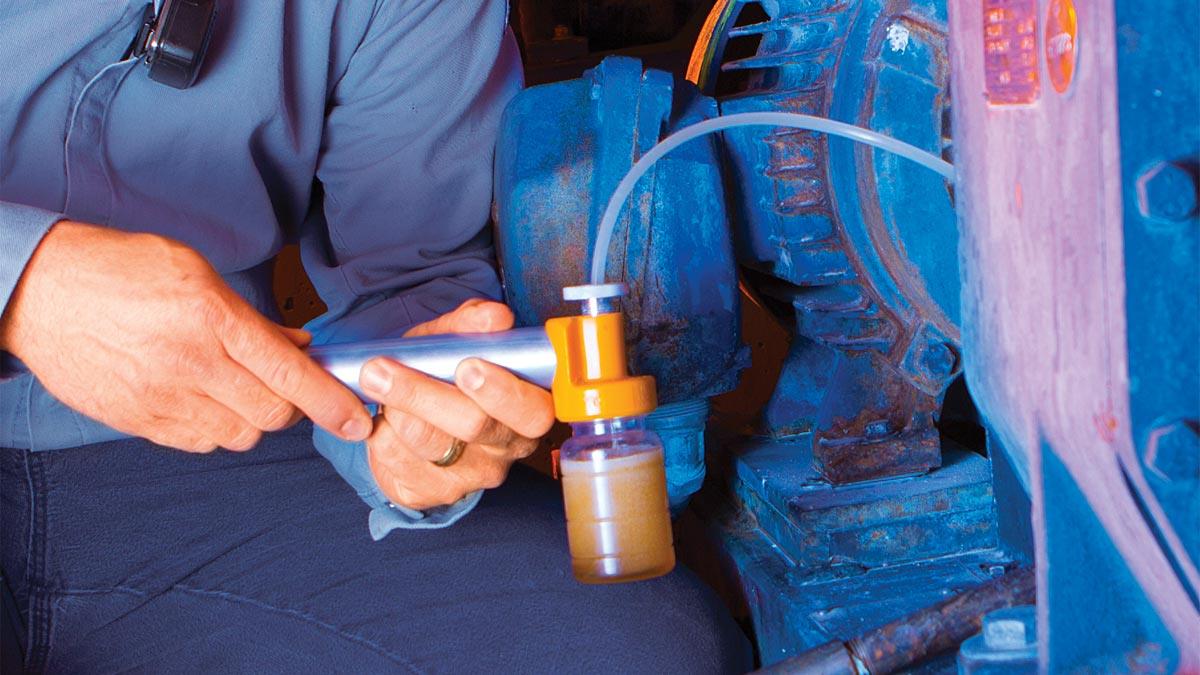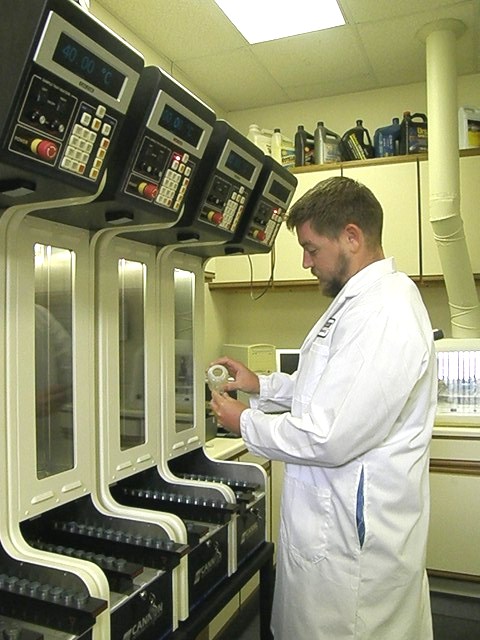

By the end of this course delegates will be able to:
Laboratory Managers, Analytical Chemists, Medical Scientists, Lab Technicians, Chemical Engineers, Laboratory Supervisors, Research and Development Scientists, Microbiologists, Laboratory Analysts, Food Technologists, Quality Assurance/Control Managers/Auditors, Instrumentation
Engineers, Chemical Engineers & Industry Personnel, chemists, and technicians working in methods development, R&D, manufacturing/process testing
It, also, covers how oil samples should be taken from machinery to obtain representative samples of the fluid system. The oil analysis tests performed on oils, hydraulic fluids, and greases are then reviewed, with an emphasis on understanding the implications of changes in the oil properties relative to machinery wear and reliability. Then it is integrated this with examples of oil analysis reports from various laboratories to show how to best interpret the report data, and how to assess oil degradation, additive depletion, and how to set and manage alarm limits. The effects of contamination, how to prevent it, and the use of filtration are then reviewed to ensure attendees understand the impact of particulate contamination on machine reliability, and how to deal with it at their plants.
This interactive Training will be highly interactive, with opportunities to advance your opinions and ideas and will include;
Why Sample Used Oil?
Lubrication Fundamentals
Lube Oil Properties
Lube Oil Sampling
Oil Analysis Testing & Implications
Interpreting Oil Analysis Reports
Bulk Oil Storage & Handling
Controlling Contaminant Ingression
Oil Filtration
Managing an Oil Analysis Program
Oil Analysis Program Metrics
BTS attendance certificate will be issued to all attendees completing minimum of 80% of the total course duration.
| Code | Date | Venue | Fees | Register |
|---|---|---|---|---|
| LAB161-01 | 08-02-2026 | Dubai | USD 5450 | |
| LAB161-02 | 13-04-2026 | Istanbul | USD 5950 | |
| LAB161-03 | 05-07-2026 | Dubai | USD 5450 | |
| LAB161-04 | 08-11-2026 | Cairo | USD 5450 |

Practical Oil Analysis seminar provides engineers, analysts, technicians and mechanics with a concise overview of the essential information required to understand machinery lubrication, correctly perf ...
Providing services with a high quality that are satisfying the requirements
Appling the specifications and legalizations to ensure the quality of service.
Best utilization of resources for continually improving the business activities.
BTS keen to selects highly technical instructors based on professional field experience
Since BTS was established, it considered a training partner for world class oil & gas institution
1st floor, Incubator Buildingو Masdar City, Abu Dhabi, UAE
Sun to Fri 09:00 AM to 06:00 PM
Contact Us anytime!
Request Info